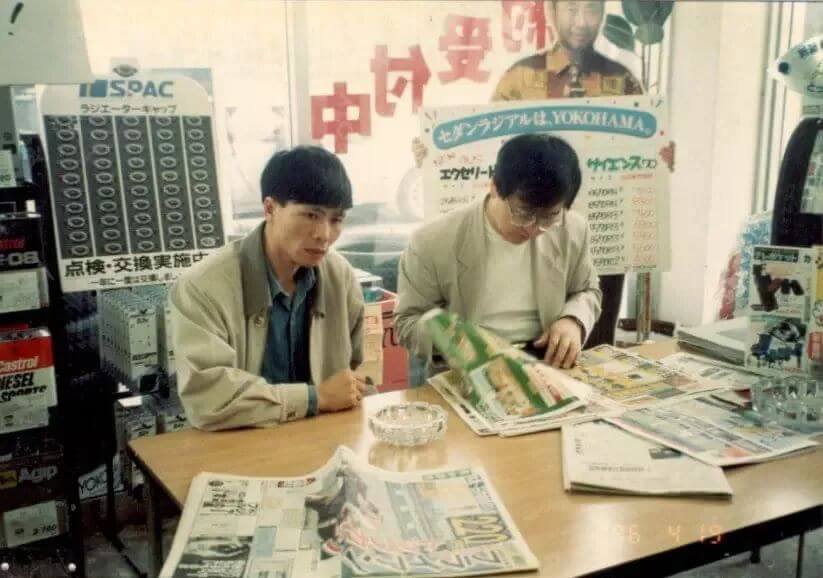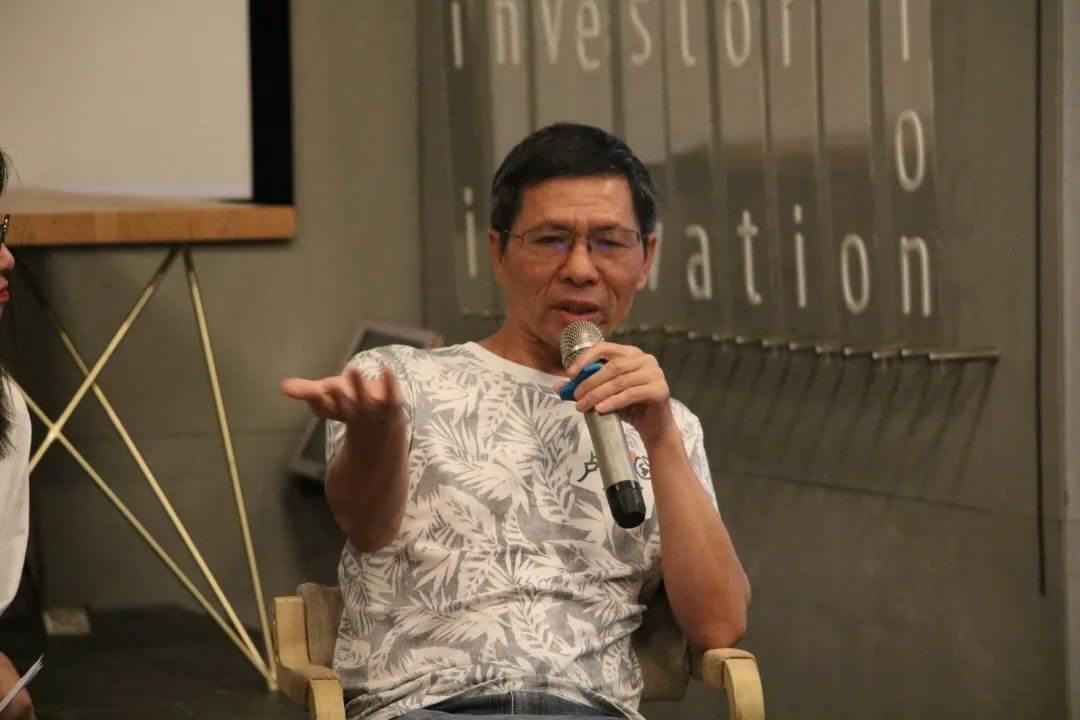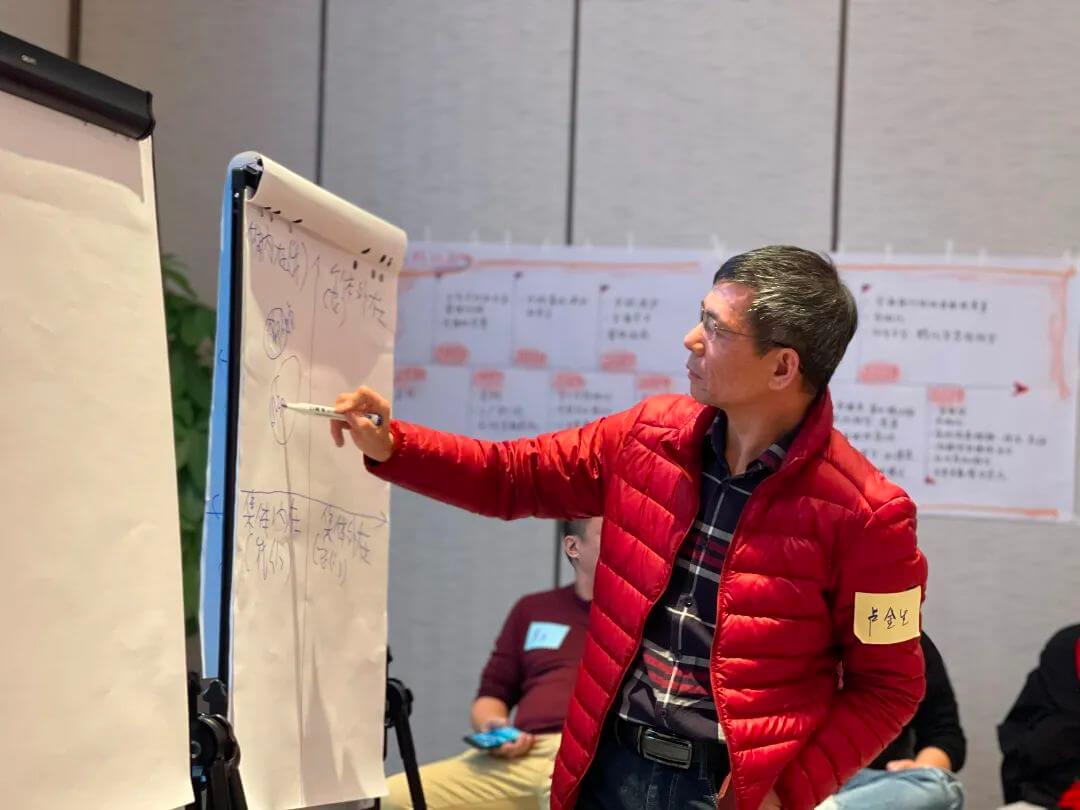"There is no absolutely real world, and in this world, there is nothing absolutely real." - Lu Jinsheng
Lu Jinsheng, male, born in 1967, graduated from Guangxi Normal University with a major in international trade. He holds a master's degree in EMBA from the China Europe International Business School and is currently pursuing studies in the Department of Philosophy at Fudan University. He currently serves as the Chairman and Founder of EISHO Group, as well as the controlling shareholder. He is also the Chairman of the China Garment Hanger Industry Association.
At the age of 21, he embarked on his entrepreneurial journey and founded his first bamboo and wood processing factory in 1988. In 1994, he established the Japanese joint venture, Guilin Yongxiang Bamboo and Wood Products Co., Ltd. (the predecessor of EISHO Group). In 2003, he founded EISHO Group and has since led the group in global business development.

The featured interviewee in this issue is Lu Jinsheng, who has spent over three decades in the industry, maintaining the fiery spirit of an entrepreneur. As the founder of EISHO, his life's opportunities, entrepreneurial journey, and inner world present an intriguing soul.
Here are excerpts from the interview:
Lu Jinsheng:
I believe there are three main points:
Firstly, learning from failures and deriving lessons from them. Failure is not something to be feared; we must face it bravely. What's important is to learn from it and not waste the experience gained from failure.
Secondly, setting goals and iterating them. Having a goal gives meaning to the journey undertaken to achieve it. The outcome is not the most important; having a goal fills the journey with purpose.
Thirdly, proactive planning and investing in the future. Every industry has its growth curve, with periods of rapid growth and slowdown or decline. When you are stable in an industry or product line, you should anticipate various possibilities several years ahead and allocate resources to invest in the future. Every new business and business model takes several years to establish a competitive advantage and transform team capabilities. Therefore, during periods of stable development, we must plan for the future in advance.
Lu Jinsheng:
I have always believed that every effort, whether it leads to failure or success, holds value. I view failure as an investment, a form of wealth. Failure can pave the way for greater success. The universe is vast, and humanity is small. Individual lives are insignificant in the grand scheme of things, let alone setbacks on the path of entrepreneurship.

Lu Jinsheng in the private board meeting of your group (September 5, 2019)
Lu Jinsheng:
The most important principle, without a doubt, is integrity. Integrity is a significant asset in business. It's essential to maintain integrity with partners, customers, and suppliers. Upholding integrity is not only a principle for a business to go far but also for individuals to succeed.
Next, it's crucial to separate the relationships between business, family, and friends. When running a business, I pursue pure, unemotional relationships. This separation ensures the healthy development of the business without unnecessary complications.
Also, it's important to realize that "running a business is not the same as doing business." Doing business can be pursued when conditions are favorable, but if it becomes challenging, it may be abandoned. This lack of sustainability is why we need to accumulate intangible assets in a business, such as culture, systems, teams, experience, and reputation. It requires continuous effort, even in the face of setbacks.
Furthermore, as mentioned earlier, persistence in your actions is crucial. Even in the face of failure, we should reflect and not give up at the first sign of difficulty. Set clear stop-loss points, and only when you hit rock bottom should you consider changing your strategy, rather than giving up easily.
Lastly, a company should strive to establish an inclusive and straightforward culture. Individual energy is limited. If you expend a significant amount of energy dealing with interpersonal relationships and conflicts, you won't be able to focus on critical tasks. This is also why I tend to speak straightforwardly and avoid beating around the bush.
Lu Jinsheng:
I would hope EISHO to be an individual with independent thought, capable of staying up-to-date with the changes of the times, embracing different cultures and differences, and continuously innovating.
If you had access to a time machine and could travel to the past or the future, but you could never return, and you only had ten minutes to decide when and where to go, where and when would you choose? Why?
Lu Jinsheng:
I would like to travel to EISHO ten years from now and see the global expansion of EISHO's business. I want to know how EISHO has transformed in the next 10 years, whether it aligns with my goals, and if EISHO can keep up with the rapid changes of the times.
Life is finite, and so is my life. The lifespan of a company is also limited, and there will inevitably be a day when it no longer exists. But if something could be left behind, I hope EISHO lives longer than I do.
Lu Jinsheng:
There is no absolute reality; this world does not have anything that is absolutely real. The world is made up of objects formed through the sensory organs of the human body. What you see is also an object perceived by yourself. A thing or an idea is merely a subjective thought formed by yourself.
Reality is relative, and each person naturally perceives the objects or things they experience as real.
For me, of course, I cannot escape the sense of reality that comes from the five human senses. However, when making decisions, I also base them on this logic and seek a balance between reality and unreality. When I invest and lose money or regret a significant expense, as long as I believe in my ability to make money, the numbers in my account are just virtual figures. Finding this balance helps me avoid getting caught up in emotions and allows me to adjust myself.

Lu Jinsheng at the EISHO VMV Co-creation Meeting and Annual Conference (January 24, 2021)
Lu Jinsheng:
Firstly, focus on the future and don't limit yourself to the present. Growing together with your team and being willing to sacrifice immediate gains for long-term benefits is essential. Otherwise, you'll be trapped in old thinking and structures, which can drain your energy.
Secondly, to succeed personally, you must first learn how to help your partners succeed. Your team members' small successes contribute to your larger success. Drive team growth and transformation through projects and incorporate transition, change, and learning into the process of launching new projects. This way, everyone can align their goals and grow together in practical situations.
Thirdly, continually enhance your ability to integrate resources. To assess someone's level and capability, look at how many internal and external resources they can mobilize and manage.
Lu Jinsheng:
I see continuous learning as the meaning of my life. In the grand scheme of the universe, humans are exceedingly small, and individuals are as ordinary as can be. Life inherently lacks meaning; it only acquires meaning when we give it meaning. Without continuous exposure to new things through learning, people can become numb.
Twenty years ago, I saw learning as a burden and something I disliked. Later, I recognized the value of learning and found an interest in it. I began extending my learning continuously. I wanted to understand how the universe works, how the Earth evolved, how humans evolved, and then moved on to history, geography, culture, religion, and art. I started wanting to learn new things continually, and this process was fascinating and exciting for me.
I also combined learning with the development of the company. As the company grew, both personal growth and the happiness index changed significantly. After studying psychology and philosophy, my perspective on issues changed, allowing me to think beyond my previous limitations and view problems from a historical development standpoint.
Lu Jinsheng:
Firstly, start by finding books that align with your interests and pain points; this will keep you engaged. The process of finding books is also a learning experience. You need to identify which authors are genuinely outstanding in a given field, and then you can start reading their books. Begin with one book, and through reading, you'll realize your knowledge gaps and areas where you need more information. This will create a desire to expand your learning by exploring related books.
Secondly, learn to tolerate knowledge that goes beyond your current thought framework. There will inevitably be painful moments when reading "dense" material. You have to endure your reading bottleneck period and accept that you might be confused and unclear at times. Don't insist on understanding everything immediately. Give yourself some time to let the information settle. There will be moments of clarity in your future learning journey. Never give up; persistence in reading will be very fulfilling.
Lastly, adjust your mindset. Reading good books is like listening to cutting-edge thoughts in a field and having conversations with world-class experts. Enjoy this process; it's the most cost-effective way to improve yourself.
Lu Jinsheng:
EISHO looks forward to your rapid understanding and integration. We expect to create and iterate EISHO together with you.